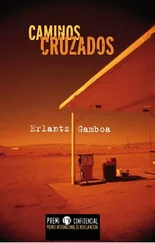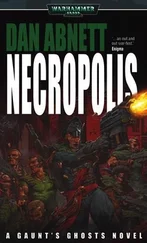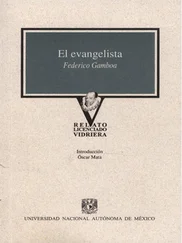Then I decided to ask him an uncomfortable question, which I hated asking him but if I hadn’t done so, I would never have been able to round out his portrait. I said to him: what do you think of life these days in Palestine? The old man shifted in his chair, frowned, and lifted one of his arms. “Let them go and make their Palestinian State in Gaza, they and the crazy fundamentalists, and leave us alone. The best thing that could happen to the West Bank would be to revert to Jordan, and be ruled from Amman.” There was not the shadow of a doubt in his words. “That would be my dream, because in the past, when we belonged to Jordan was the best time.” Between the wars of 1948 and 1967, the West Bank had been under Jordanian control, and Jamil had driven a bus that did the route from Hebron to Amman, there and back every day. “I know that road like the back of my hand,” he says, “and I would give my life to drive it again, freely.” Then he was silent for a moment before adding, slyly: “more than anything else I’d like to go back to Beirut, with its movie theaters and its nightclubs, its women with eyes as black as caves who take you back to the first day of the world, with its neon lights in the night that seem to say to the visitor: you’ve just gotten here after a long journey, now just enjoy yourself.”
Jamil still has his Jordanian documents, his passport and driving license. After the 1967 war and the Israeli occupation, he had to change documents again. He was living in Israel now and couldn’t go back to Amman. The border on the river Jordan, which before had been only a small bridge, had now turned into an unbreachable wall. The region had become smaller and he had to limit his journeys: to Jerusalem, to Nablus, to Haifa. After a few years, with the Oslo Accords and the new maps, he had to change documents again for those of the Palestinian Authority and the territory became even smaller, so he decided to retire, sell his truck, and open a store selling cold drinks, ice cream, and candy.
The story of this old driver is the story of a whole region, with a past that is cruel, intense, and beautiful. A metaphor for life in the world: Jamil has lived in four different countries without ever moving house.
Rashid was applauded, and I looked again at the back of the room, where Jessica and Egiswanda were. They were still sitting side by side, without talking. I felt like getting up and going to them, and revealing to them something of what united them, but I could not leave the table. In this, I must confess, there was also a slight erotic charge: I wanted to know which of the two had been the voice I had heard in the darkness.
Suddenly I heard my name and, looking at the chairperson, saw that she was smiling at me. In my distraction, I had heard neither her introduction nor the question with which she had handed over to me, so I had to rule out the idea of improvising, especially because, as I now realized with horror, I had completely forgotten the theme of the round table.
I thanked the chairperson and the directors of the ICBM, apologized for having missed the first event at which my presence had been scheduled, and announced that, as a writer, the best thing I could do would be to read a story. And I immediately grabbed the first of my papers and started to read:
The story I am about to tell you is rather sad, and the truth is, I don’t know why I should tell it to you now and not, for example, in a month or a year, or never. I suppose I am doing it out of nostalgia for my friend the Portuguese poet Ivo Machado, who is one of the main characters, or perhaps because I recently bought a model plane made out of metal that I now have on my desk. Excuse the personal tone. This story will be extremely personal.
The protagonist of my story is, as I have already said, the poet Ivo Machado, who was born in the Azores, but what matters to us now is that his everyday job was air traffic controller, in other words, he was one of those people who sit in the control towers of airports and guide planes along the air routes.
The story is as follows: when Ivo was a young man of twenty-five (in the mid-Eighties) he controlled flights in the airport of the Azores, that Portuguese archipelago in the middle of the Atlantic, an equal distance from Europe and North America. One night, when he came into work, the chief controller said: “Ivo, today you will direct a single plane.” He was surprised, because the normal thing was to guide the flights of a dozen aircraft. Then the chief explained: “It’s a special case. An English pilot taking a British World War II bomber to Florida, to hand it over to a collector of planes who has just bought it at an auction in London. He made a stop here in the Azores and continued toward Canada, because he has to follow a strictly laid down route, but he was caught in a storm, had to fly in a zigzag, and now doesn’t have much fuel left. He won’t reach Canada, and he doesn’t have enough fuel to turn back. He’s going to fall in the sea.”
Saying this, he passed the headphones to Ivo. “You have to keep him calm, he’s very nervous. A Canadian rescue team has already left in boats and helicopters for the spot where he’s expected to fall.”
Ivo put on the headphones and started talking to the pilot, who was indeed very nervous. The first thing he wanted to know was the temperature of the water where he was going to fall and if there were sharks, but Ivo reassured him that there weren’t any. Then their conversation became more personal, which doesn’t often happen between an air traffic controller and a pilot. The Englishman asked Ivo who he was and what he did in life, he asked him to talk about his tastes, even his feelings. Ivo told him he was a poet and the Englishman asked him to recite something. They were talking in English and luckily Ivo knew by heart a few poems by Walt Whitman and Coleridge and Emily Dickinson. He recited them and thus they continued for a while, commenting on the sonnets of life and death and a few passages that Ivo remembered from The Rime of the Ancient Mariner, the story of another man struggling against the fury of the world.
Time passed and the pilot, already calmer now, asked him to recite his own poetry, and so Ivo made an effort and translated some of his poems into English just for him, just for that pilot battling a storm in an old bomber, in the middle of the night over the ocean, the clearest and most terrifying image of solitude. “I sense a deep sadness in your poems, and even a certain disillusionment,” said the pilot, and they talked about life and dreams and the fragility of things, and of course about the future, which would not be a future full of poetry, until there came the dreaded moment when the needle of the fuel gauge went into red and the bomber fell in the sea. Then the chief controller told Ivo to go home, because after such a difficult experience, it would not be a good idea for him to handle other aircraft.
The next day Ivo found out what had happened. The Canadian rescue team had found the plane intact, floating on the water, but the pilot was dead. Part of the cabin had came away and struck him on the back of the neck. “The man died at peace,” Ivo said to me, “and that’s why I still write poetry.” After a while, IATA held an investigation into the accident and Ivo had to listen, in front of a jury, to his conversation with the pilot. They congratulated him. It was the only time in the history of aviation that the frequencies between a plane and a control tower had been filled with poetry. The whole thing created a very good impression and some time later Ivo was transferred to the airport in Oporto.
“I still dream of his voice,” Ivo told me once, remembering him, as we drank whiskey in Póvoa de Varzim, where the great writer Eça de Queiroz was born, and I understand him. All of us who write should do it like that: as if our words were for a pilot struggling alone, in the middle of the night, against a raging storm.
Читать дальше












